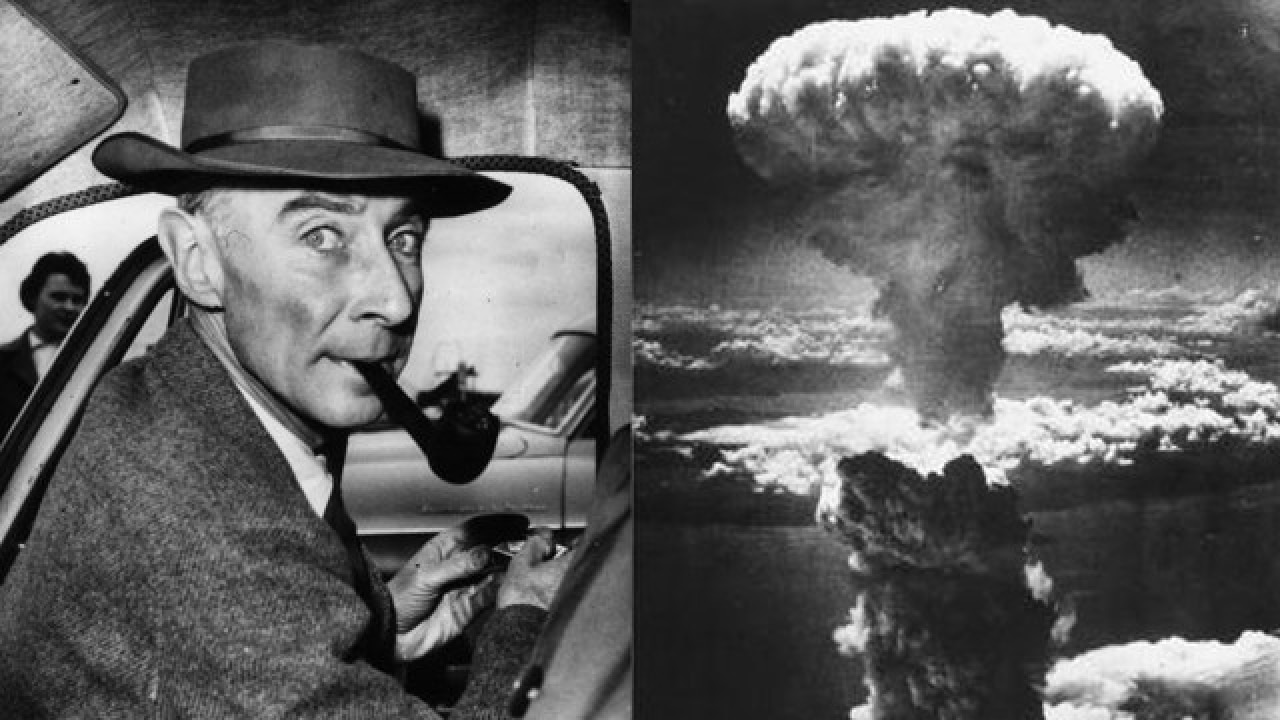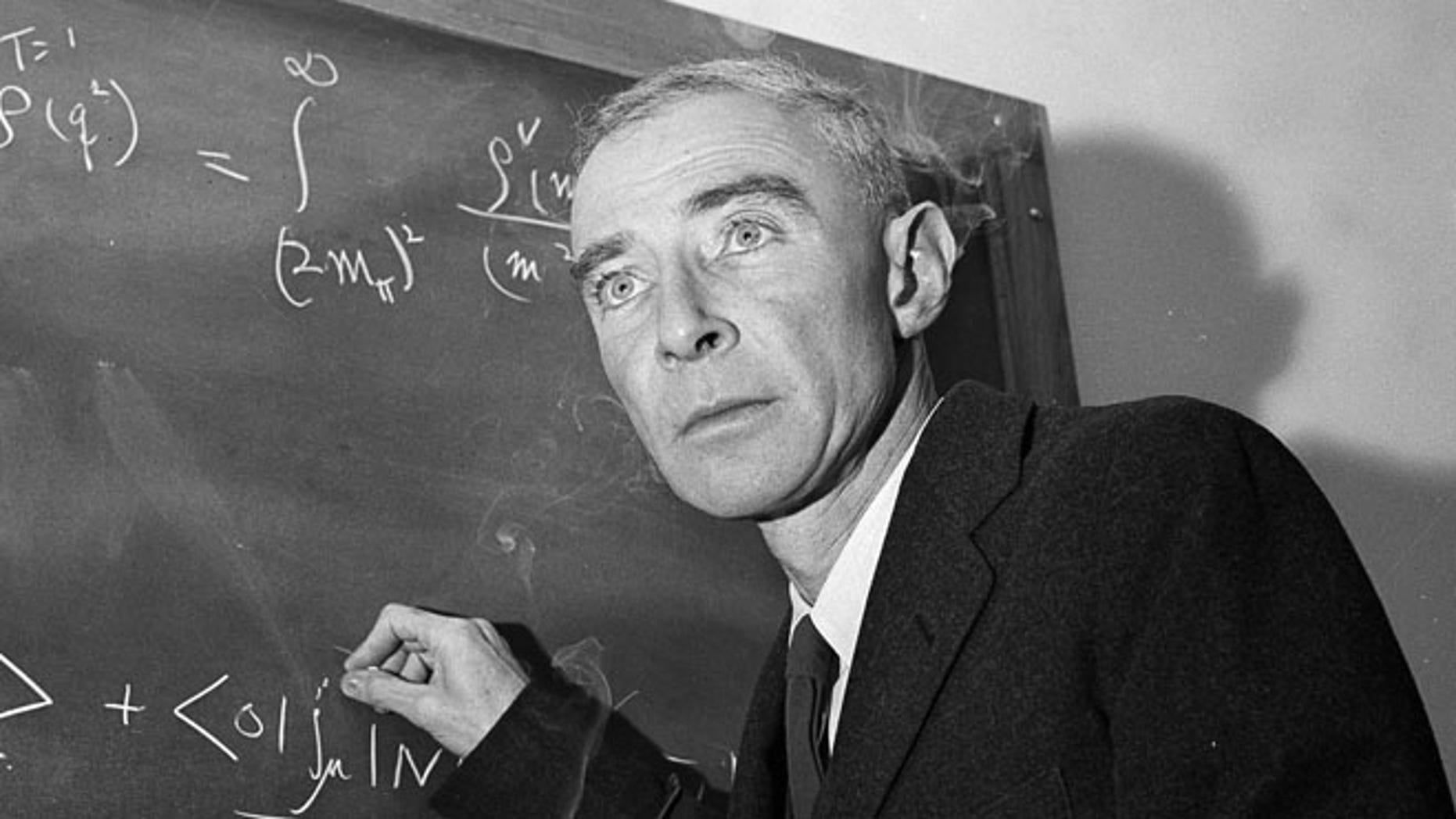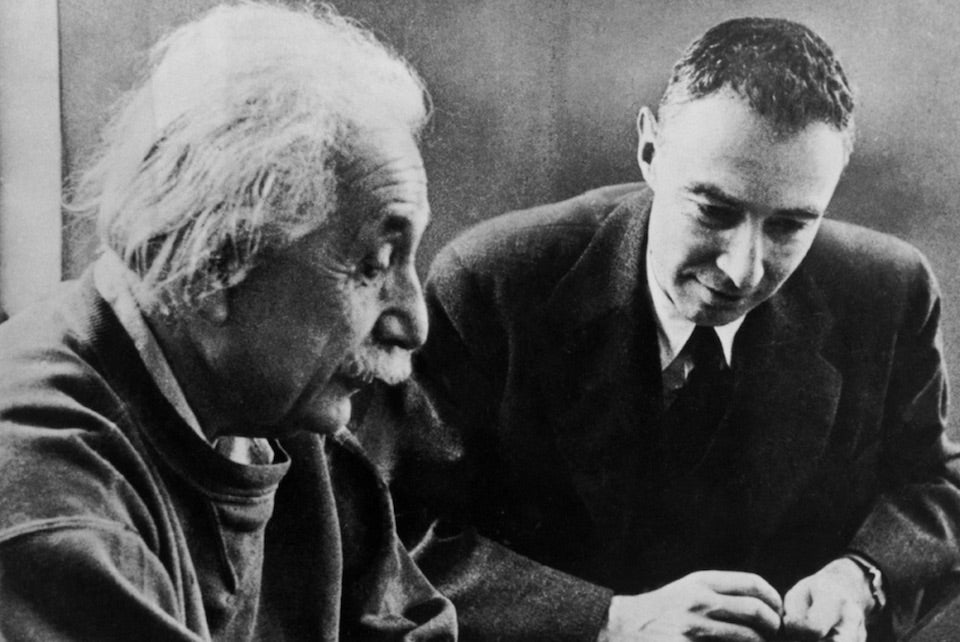Oppenheimer’s Plea to Nehru: Urged Not to Join US’ Quest for Deadlier Bomb Than A-Bomb

Oppenheimer’s Plea to Nehru: Urged Not to Join US’ Quest for Deadlier Bomb Than A-Bomb
Christopher Nolan’s film “Oppenheimer” has once again drawn attention to the intriguing historical figure, J. Robert Oppenheimer, who is portrayed as “the most important person who ever lived” in the movie. However, the film has faced controversy in India due to a scene depicting actors reading the Bhagavad Gita during an intimate moment.
What many might not be aware of is that Oppenheimer had a significant interaction with former Indian Prime Minister Jawaharlal Nehru. Oppenheimer disclosed to Nehru the United States’ plan to develop a weapon even more potent than the atomic bomb. He reportedly implored Nehru not to provide thorium to the US, as it was intended for use in building this more powerful radioactive weapon.
The revelation sheds light on the complex historical context of Oppenheimer’s involvement in the development of nuclear weapons during World War II and the subsequent Cold War era. The film “Oppenheimer” and the controversy surrounding it serve to spark discussions and reflections on the legacy and impact of one of history’s most contentious scientific figures.

after witnessing the catastrophic effects of the atomic bombs dropped on Hiroshima and Nagasaki during World War II, J. Robert Oppenheimer became burdened with guilt. He was deeply affected by the immense destruction and loss of life caused by these nuclear weapons.
In the aftermath of the war, Oppenheimer dedicated the rest of his life to advocating for the responsible and peaceful regulation of nuclear power. He recognized the immense power and potential danger of nuclear technology and urged caution in its development and use. Oppenheimer was vocal in expressing his concerns about the potential consequences of unchecked nuclear proliferation and the need for international cooperation and oversight.
Notably, when the United States began the development of the hydrogen bomb, a weapon with even greater destructive potential than the atomic bomb, Oppenheimer opposed his government’s involvement. He believed that such a weapon would escalate the arms race and increase the risk of nuclear war.
Oppenheimer’s later years were marked by his commitment to scientific responsibility and his advocacy for arms control and disarmament. His experiences during World War II and his subsequent moral reflections shaped his stance as a prominent figure in the nuclear age, and his actions demonstrated a determination to prevent the misuse of nuclear technology for destructive purposes.

The narrative surrounding J. Robert Oppenheimer gains further intrigue with writer Nayantara Sahgal shedding light on a communication attempt between Oppenheimer and Jawaharlal Nehru, who was her uncle. In her book titled “Nehru: Civilizing A Savage World,” Sahgal reveals a fascinating exchange between the two prominent figures.
According to Sahgal’s account, Oppenheimer contacted Nehru to discuss the US government’s pursuit of developing a weapon even deadlier than the atomic bomb. Recognizing the significance of India’s valuable thorium, Oppenheimer implored Nehru not to trade it for American wheat, a resource that India needed at that time.
This revelation adds a significant historical dimension to the interactions between these two influential leaders. It sheds light on the complexities of the post-World War II era and the global dynamics of nuclear power, resource management, and international relations.
Nayantara Sahgal’s account provides a glimpse into the personal and political exchanges that occurred during a critical period in history, and it further highlights the moral dilemmas faced by world leaders like Nehru and Oppenheimer in navigating the challenges of the nuclear age. The story serves as a testament to the interconnectedness of historical events and the complex relationships that shaped the course of global affairs.

Nayantara Sahgal’s book sheds further light on the concerns and exchanges between Nehru and his sister Vijaya Lakshmi Pandit during a critical period of global tension. According to the letters exchanged between them, Vijaya Lakshmi Pandit described the prevailing “war psychosis” in America and the lack of tolerance towards India’s non-aligned stance in international affairs.
In a letter to Nehru dated February 21, 1951, Pandit conveyed a message from J. Robert Oppenheimer. The letter highlighted Oppenheimer’s deep concern about the ongoing research on a new weapon, which he described as “horrible and deadly in nature.” Oppenheimer warned that the United States was deliberately moving towards a war of annihilation, taking secretive steps to develop a weapon with the same lethal qualities as the atomic bomb. This new research was being conducted at a rapid pace.
Sahgal’s book provides valuable insights into the historical context of the early 1950s, capturing the concerns and perspectives of key individuals like Nehru, Pandit, and Oppenheimer amid the post-World War II geopolitical landscape.
The correspondence between Oppenheimer and Nehru, as conveyed through India’s envoy Amiya Chakravarti, highlights the scientist’s urgent plea to the Government of India. Oppenheimer emphasized the critical importance of India’s abundant thorium for the US’s project. He passionately requested that India refrain from supplying thorium, either voluntarily or under any pressure. Oppenheimer went so far as to “beg” the Government of India not to sell any thorium to the US, warning that if India’s vast resources of thorium were made available to the US, it could lead to the development of the most destructive war in history.

Nehru, known for his strong abhorrence of nuclear weapons and his staunch commitment to global disarmament, heeded Oppenheimer’s plea and declined the offer to supply thorium to the US. Nehru’s refusal aligned with his broader stance against the proliferation of nuclear weapons and his pursuit of their complete elimination.
Interestingly, it is revealed by Oppenheimer’s co-biographer, Kai Bird, that Nehru offered Indian citizenship to Oppenheimer in 1954. However, Oppenheimer, being a staunch patriot of the United States and deeply committed to his country, likely did not take the offer seriously and declined it.
Christopher Nolan’s film “Oppenheimer,” with Cillian Murphy portraying J. Robert Oppenheimer, delves into the life and struggles of the renowned scientist during his involvement in the Manhattan Project. The film portrays Oppenheimer’s pivotal role in leading the top-secret project that led to the development of the world’s first atomic bombs.
In the movie, Oppenheimer is depicted as facing a witch hunt initiated by his government after he refused to comply with their demands. This portrayal highlights the complex ethical and moral dilemmas that Oppenheimer grappled with during his involvement in the development of nuclear weapons.

The film’s resonance with Indian audiences is evident, as it has achieved considerable success, grossing over Rs 50 crore in India. The inclusion of the Indian context, such as the controversy surrounding the depiction of the Bhagavad Gita scene, may have contributed to its connection with Indian viewers.
“Oppenheimer” sheds light on the complex legacy of one of history’s most controversial figures, providing a cinematic exploration of Oppenheimer’s scientific achievements, personal struggles, and the moral implications of his contributions to the nuclear age. The film delves into the historical context of the Manhattan Project and the profound impact of its outcomes on the world.



